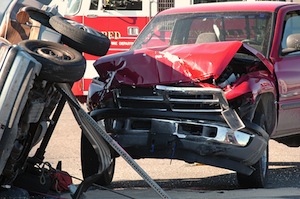
To answer the second part of the question first, yes, everyone should have Personal Injury Protection (PIP). And I encourage you to get as much as your carrier will provide you. It’s generally offered in increments of $2,500.00, up to about $10,000.00, although I have seen it higher than $10,000.00 on at least one occasion. My suggestion is that everyone should have $10,000.00 worth of PIP coverage, and I will explain why.
Generally, the reasons people should have PIP are that it’s very inexpensive and only on rare occasions will a claim make a person’s insurance rates go up (even then, I would strenuously argue that making a claim is worth it). It can be cumulative, and there is not a right of subrogation. Okay, so the terms “cumulative” and “subrogation” may have you reaching for Aleve, or perhaps liquid relief, so I’ll spell that out. Let’s start with PIP.
PIP is short for Personal Injury Protection. It is an optional type of insurance coverage you buy as a part of an automobile liability insurance policy. As people likely know, the State of Texas requires that all licensed drivers carry at least the minimum amount of liability coverage (at the moment, this is $50,000.00).
Of importance, and likely the subject of another post, many (MANY!!) drivers DO NOT have coverage despite the law; thus, it is incumbent upon responsible people to protect themselves—and one way to do this is to have proper and adequate insurance coverage.
PIP is an option that can be quite helpful, and here’s how it works (in general): PIP is a no-fault type of coverage (which means that even if you were at fault in an accident, you can still collect on your PIP—and so can other passengers in your car). PIP will pay your reasonable medical expenses up to the limits (note: as a general rule, one is not allowed to make a “double recovery,” but, with regard to PIP, it can actually help enhance recoveries when there is other coverage such as health insurance and/or third-party coverage in an at-fault liability claim, thus the term “cumulative” I mentioned).
And finally, if a person makes a recovery against a responsible third party who may have caused an accident, unlike traditional health insurance, the PIP carrier cannot “subrogate” – which means that it cannot seek from the insured a reimbursement of sums paid out to reimburse for medical expenses.
Is this free money? No. But it is excellent coverage and can greatly benefit the insured. From a financial balancing test, not only is PIP very inexpensive coverage, but, if one collects $10,000.00 from a claim, even if the rates go up some amount, say $200 a year, it would take 50 years to pay back that $10,000.00 to the carrier at the rate of $200 per year. Clearly, having this coverage is a wise decision.
Thus, the bottom line: PIP is exceptionally great coverage and I urge everyone to secure this coverage immediately. One may purchase the coverage and never need it, but “better safe than sorry.” When a person needs it, he or she needs it! And if a person does not have this coverage, it can be a huge detriment to being made whole.









